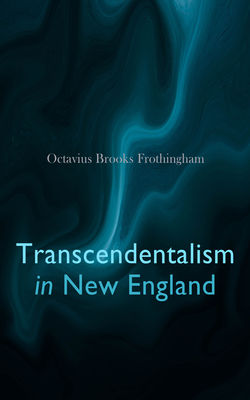Transcendentalism in New England

Реклама. ООО «ЛитРес», ИНН: 7719571260.
Оглавление
Octavius Brooks Frothingham. Transcendentalism in New England
Transcendentalism in New England
Table of Contents
PREFACE
TRANSCENDENTALISM
BEGINNINGS IN GERMANY
TRANSCENDENTALISM IN GERMANY
KANT
JACOBI
FICHTE
SCHELLING
TRANSCENDENTALISM IN THEOLOGY AND LITERATURE
TRANSCENDENTALISM IN FRANCE
TRANSCENDENTALISM IN ENGLAND
TRANSCENDENTALISM IN NEW ENGLAND
PRACTICAL TENDENCIES
CONSTITUTION
ARTICLE I. NAME AND MEMBERSHIP
ARTICLE II. CAPITAL STOCK
ARTICLE III. GUARANTIES
ARTICLE IV. DISTRIBUTION OF PROFITS
ARTICLE V. GOVERNMENT
ARTICLE VI. MISCELLANEOUS
RELIGION
THE SEER
THE MYSTIC
THE CRITIC
THE PREACHER
THE MAN OF LETTERS
MINOR PROPHETS
LITERATURE
Отрывок из книги
Octavius Brooks Frothingham
e-artnow, 2020
.....
Leibnitz, anxious to escape the danger into which Descartes fell, of making the outward world purely phenomenal, an expression of unalterable thought, and also to escape the consequences of Locke's position that all knowledge originates in the senses, suggested that the understanding itself was independent of experience, that though it did not contain ideas like a vessel, it was entitled to be called a power of forming ideas, which have, as in mathematics, a character of necessary truths. These necessary laws of the understanding, which experience had no hand in creating, are, according to Leibnitz, the primordial conditions of human knowledge.
Hume, taking Locke at his word, that all knowledge came from experience, that the mind was a passive recipient of impressions, with no independent intellectual substratum, reasoned that mind was a fiction; and taking Berkeley at his word that the outward world had no material existence, and no apparent existence except to our perception, he reasoned that matter was a fiction. Mind and matter both being fictions, there could be no certain knowledge; truth was unattainable; ideas were illusions. The opposing schools of philosophers annihilated each other, and the result was scepticism.
.....